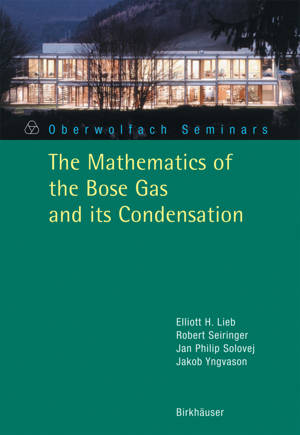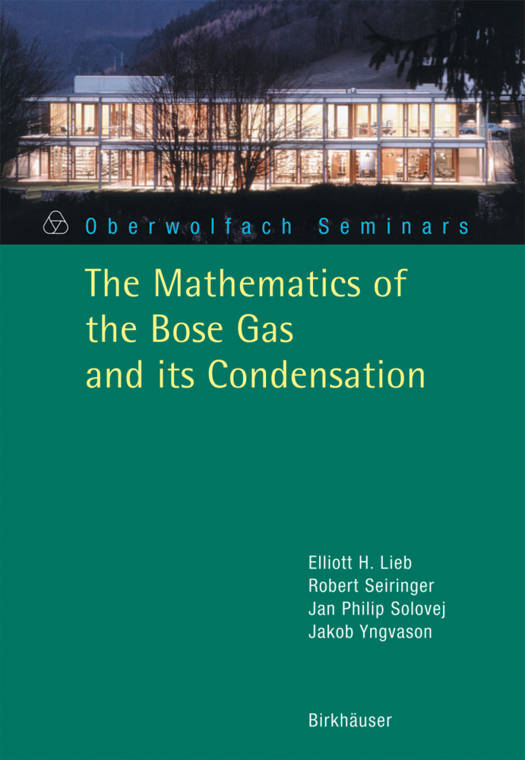
Bedankt voor het vertrouwen het afgelopen jaar! Om jou te bedanken bieden we GRATIS verzending (in België) aan op alles gedurende de hele maand januari.
- Afhalen na 1 uur in een winkel met voorraad
- In januari gratis thuislevering in België
- Ruim aanbod met 7 miljoen producten
Bedankt voor het vertrouwen het afgelopen jaar! Om jou te bedanken bieden we GRATIS verzending (in België) aan op alles gedurende de hele maand januari.
- Afhalen na 1 uur in een winkel met voorraad
- In januari gratis thuislevering in België
- Ruim aanbod met 7 miljoen producten
Zoeken
The Mathematics of the Bose Gas and Its Condensation
North Atlantic Treaty Organization, Robert Seiringer, Jan Philip Solovej, Jakob Yngvason
€ 55,95
+ 111 punten
Omschrijving
The mathematical study of the Bose gas goes back to the ?rst quarter of the twentieth century, with the invention of quantum mechanics. The name refers to the Indian physicist S.N. Bose who realized in 1924 that the statistics governing photons(essentiallyinventedbyMaxPlanckin1900)isdetermined(usingmodern terminology) by restricting the physical Hilbert space to be the symmetric tensor product of single photon states. Shortly afterwards, Einstein applied this idea to massive particles, such as a gas of atoms, and discovered the phenomenon that we now call Bose-Einstein condensation. At that time this was viewed as a mathematical curiosity with little experimental interest, however. The peculiar properties of liquid Helium (?rst lique?ed by Kammerlingh Onnes in 1908) were eventually viewed as an experimental realization of Bose- Einstein statistics applied to Helium atoms. The unresolved mathematical pr- lem was that the atoms in liquid Helium are far from the kind of non-interacting particles envisaged in Einstein's theory, and the question that needed to be - solved was whether Bose-Einstein condensation really takes place in a strongly interacting system -- or even in a weakly interacting system. That question is still with us, three quarters of a century later! The ?rst systematic and semi-rigorous mathematical treatment of the pr- lem was due to Bogoliubov in 1947, but that theory, while intuitively appealing and undoubtedly correct in many aspects, has major gaps and some ?aws. The 1950's and 1960's brought a renewed ?urry of interest in the question, but while theoreticalintuitionbene?tedhugelyfromthisactivitythemathematicalstructure did not signi?cantly improve.
Specificaties
Betrokkenen
- Auteur(s):
- Uitgeverij:
Inhoud
- Aantal bladzijden:
- 208
- Taal:
- Engels
- Reeks:
- Reeksnummer:
- nr. 34
Eigenschappen
- Productcode (EAN):
- 9783764373368
- Verschijningsdatum:
- 16/06/2005
- Uitvoering:
- Paperback
- Formaat:
- Trade paperback (VS)
- Afmetingen:
- 171 mm x 239 mm
- Gewicht:
- 417 g

Alleen bij Standaard Boekhandel
+ 111 punten op je klantenkaart van Standaard Boekhandel
Beoordelingen
We publiceren alleen reviews die voldoen aan de voorwaarden voor reviews. Bekijk onze voorwaarden voor reviews.









